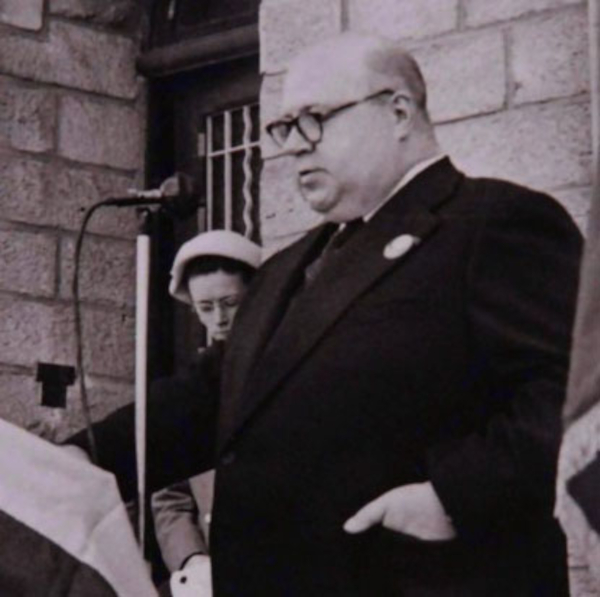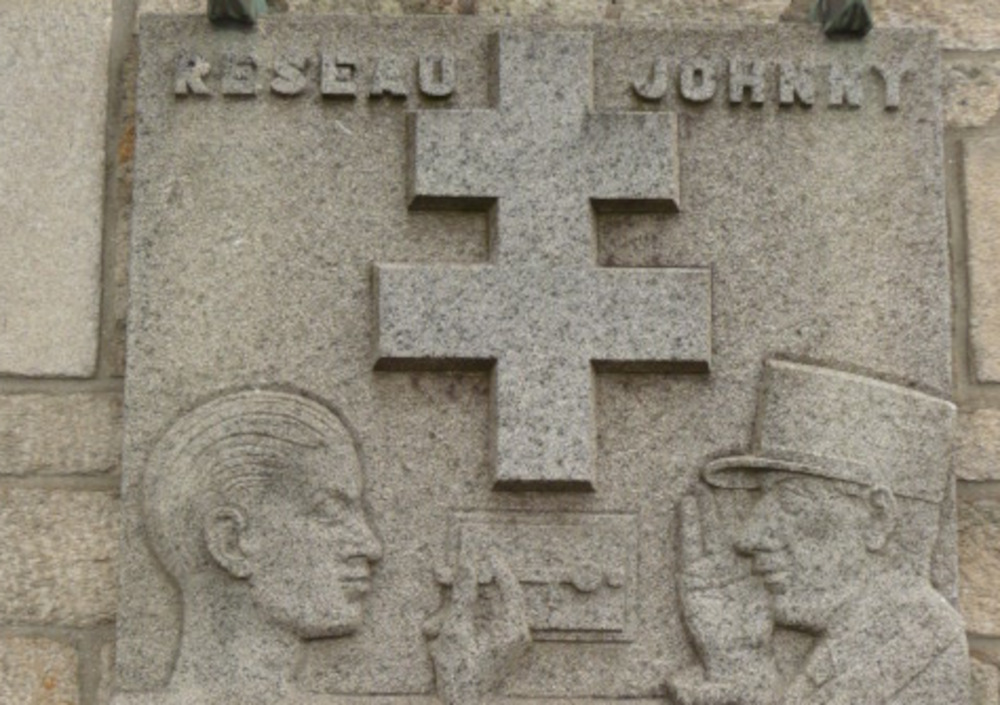From the first months of the German occupation of northern France, the Breton coastline became a strategic area. Several fishing boats took on clandestine crossings across the Channel. Those desiring to escape gathered at the seaports in the Finistère county of Brittany. Robert Alaterre left Douarnenez on the Petite-Anna and arrived in England on the 31st of October 1940 after drifting for 11 days in stormy weather. Jean Le Roux left Camaret on the 16th of December 1940 on board the lobster fishing boat l'Émigrant. Intelligence gathering in the occupied zone of France became an absolute strategic priority for the British military. The Intelligence Service recruited seamen to provide clandestine links across the Channel. In July 1940, General de Gaulle called upon Captain Dewavrin ("Passy") to establish an intelligence service. The prospect of a joint mission was quickly discussed but within a context of mutual distrust, the British took over, especially concerning the recruitment of new agents. On the 19th of March 1941, Alaterre and Le Roux landed on a beach in Lampaul-Ploudalmézeau (Finistère), equipped with two radio sets to collect strategic intelligence and transmit back to London. On the 27th of March, Jean Le Roux established the first permanent clandestine radio link from the German-occupied zone in Quimper. The British named this clandestine network "Johnny's Group" after Jean (John in French) Le Roux.
Setting up clandestine intelligence and operations
Within a few months, Alaterre and Le Roux managed to recruit agents and transmit intelligence by radio. They successfully managed to inform London of the German ships' movements and their repairs in Brest (including those of the Schnarhorst and Gneisenau cruiser warships) and also of the artificial fog chemical composition used by the Germans against aerial bombings. Le Roux was more responsible for the radio transmissions. After a few weeks in Quimper, he regularly changed transmission sites, finding different hideouts in manor houses in the area. The Johnny network was a forerunner in conducting maritime operations with the Royal Navy, establishing clandestine connections and transferring agents, radio transmitters or money between occupied France and England. Encounters were organised at night off the coast of Brittany between British submarines and fishing boats. Three operations of this type were scheduled in July, September and November 1941. The last one allowed Robert Alaterre to be exfiltrated, as he had most likely been uncovered by the enemy, aka "brulé" burnt in French, the term used when a member of the Resistance was compromised.
The hunt, the dissolution
The Abwehr, the German military counterespionage, had been monitoring the Breton coast since 1940 and managed to infiltrate the smugglers' networks. Several incidents occurred during the summer of 1941. Potential German signal monitoring in late August 1941 led Le Roux to hastily recruit a new clandestine radio operator and install a transmitter in Carhaix. The operator was uncovered and arrested on the 9th of September. Alaterre and Le Roux fled to Rennes, and the clandestine radio transmissions with London resumed. At the end of November, Alaterre was replaced by André Malavoy, a young 26-year-old unknown to the other members. Malavoy managed to expand the network in Paris and Rouen in a few weeks, recruiting new agents and informers through his connections. However, a violent conflict quickly pitted him against Le Roux and other agents, who rejected his legitimacy and decisions. The warning signs multiplied at the start of 1942 as the Abwehr patiently conducted its investigation. Finally, fear, suspicion, and the certainty that a traitor was hiding in the network led to the dismantling of the network. Between the 14th and 16th of February, the original clandestine agents, as well as Malavoy, were arrested in Quimper and Concarneau. In the following weeks, internal conflicts led to a break in relations with London, and the network was dismantled in Finistère, Rennes and Paris. Only a few agents evaded the manhunt, including Jean Le Roux, who managed to reach London in March 1943. While the French Resistance was increasing its members across mainland France, the Johnny network faded out after twelve months of endless activity; out of 197 recognised members of the clandestine network at the Liberation of France, 53 had been killed, and 60 deported or incarcerated.
A tough aftermath

Jean Le Roux was given a military award by Colonel de Kersauzon at the inauguration of the commemorative plaque on the 8th of May 1955. (Le Grand Alain et Thomas Georges-Michel, Le Finistère dans la guerre, volume 1, éditions de la Cité, 1980)
After the war, the network's clandestine activities remained on the fringes of the great Gaullist narrative being set up. Although the mission was to be carried out jointly by the in-exile Free French Government and the British Government, British Intelligence kept Passy on the side-lines. On their return to London, the network founders were poorly received by the BCRA, the Intelligence and Operations Central Bureau. The equivalent of the Free French secret services blamed them for supposedly being British Intelligence agents. Despite the network being officially recognised after the war, the network's precursory role was only marginally acknowledged. However, on the 8th of May 1955, a commemorative plaque was installed on the house in Quimper, from which the first radio message was transmitted. This occurred at the same time as the inauguration of the "Place Charles-de-Gaulle" and the "Rue d'Estienne-d'Orves" in Quimper. The inauguration ceremony, rigorously regulated, reinstated the Johnny network's clandestine operation as part of the broader Gaullist narrative. The plaque itself is a symbol of this reappropriation. The ceremony marked the peak of the network's memorial as its story would only be rarely evoked afterwards. Nearly sixty years later, Jean-Louis Crémieux-Brilhac, historian and former member of the Resistance, re-affirmed the importance of the network: "Robert Alaterre, an efficient and discreet hero, founder and leader of the Johnny network, was unjustly overshadowed by the renowned Colonel Rémy, as the first Free French government secret agent who [...] established regular radio communication with London. Members of the Johnny network were ordinary people who had to learn by themselves and, with few resources, the basics of intelligence and clandestinity. They paid a hefty price in this process of becoming a member of the Resistance.


